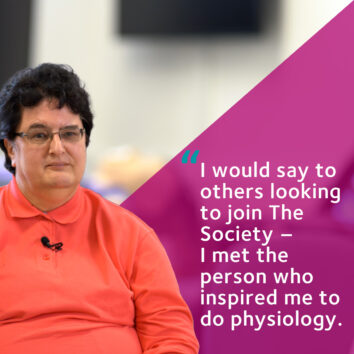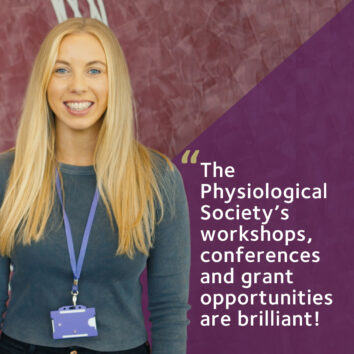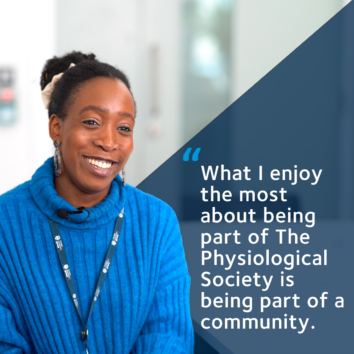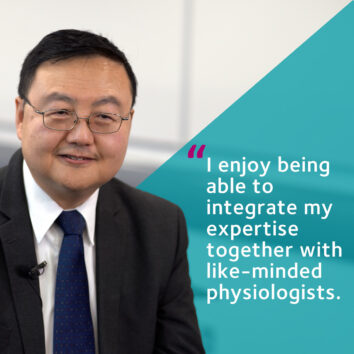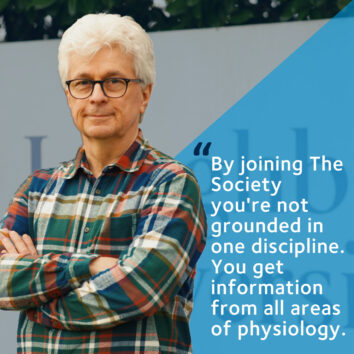

Dr Nicola King
What I would say to others looking to join The Physiological Society is I met the person who inspired me to do physiology. Perhaps you will have the chance to meet someone who inspires you too
Career journey
Dr Nicola King largely teaches all aspects of cardiovascular science including physiology, pathophysiology and pharmacotherapy. However, you can also find Dr King teaching other aspects of physiology to foundation year and first year students.
The major thrust of King’s research is to explore different approaches to improving the outcomes of patients undergoing cardiac surgery or cardiology interventions. The method used is systematic review and meta-analysis. Classically a major focus of King’s research is the role of amino acids and small peptides in the heart. In particular, membrane transport, hypertrophy, and myocardal protection against ischaemia reperfusion. Membrane transport has been a mainstay of Dr King’s research going right back to her PhD days. Most recent publications have investigated dipeptide transport in the kidney under various conditions.

Hear from Dr Nicola King
Questions and Answers
What inspired you to work and/or study cardiac physiology?
I met a very inspiring cardiac physiologist, and he wanted to look at how taurine got in and out of the heart. This was a really undiscovered area, so it was something new, something exciting and something I wanted to do.
What inspired you to join The Physiological Society?
It was the chance to go to conferences. Now I understand on the peripheral sense that’s about traveling the world, but for me, the thing that really inspired me was the chance to meet and listen to my heroes in science.
What do you enjoy the most about working in physiology?
I think that working in physiology is like being an explorer. But rather than going out into the jungle, what you’re actually doing is exploring the human body and how the human body works.
What’s been the most exciting part of your career?
The time that I spent at the University of Brunei Darussalam. I was incredibly privileged that within a few weeks of starting to work there, they asked me to lead the team that would set up a new degree in biomedical sciences.
What’s been the biggest challenge in your career?
Finding the time to really sit down and think, to really be able to sit down and plan my research.
How has being a member of The Society benefited your career?
Being a member of The Physiological Society has benefited my career because I met the man who inspired me to work in amino acid transport in the heart.
Why do you think physiology is important as a career and in the future? How do you feel physiology or your area of research has an impact on the world?
I feel that physiology is important as it’s really at the forefront of discovery. So unless you understand physiology, how something works, you can’t understand how it goes wrong. I feel that physiology and in particular cardiac physiology has an impact on the world because understanding physiology helps you to understand pathophysiology.
What do you enjoy the most about being a part of The Society?
What I enjoy most about being a member of The Physiological Society is contact with other members.
What would you say to others looking to join The Society?
I met the person who inspired me to do physiology. Perhaps you will have the chance to meet someone who inspires you too.
Dr Nicola King
